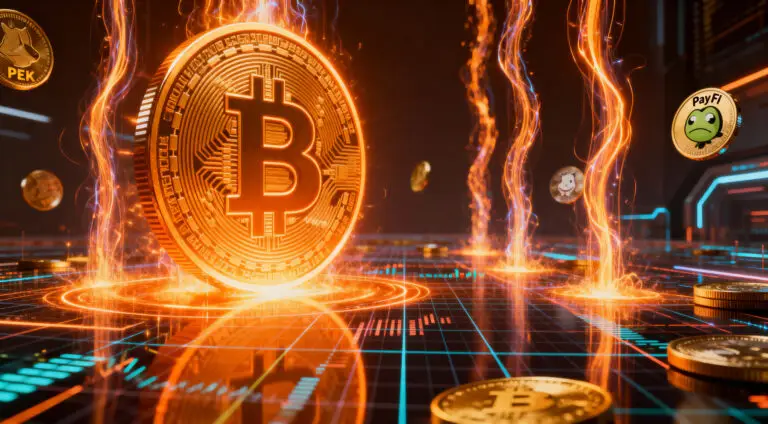The US and Russia Fail to Reach a Deal
The highly anticipated summit between U.S. President Donald Trump and Russian President Vladimir Putin in Anchorage, Alaska, has concluded without a ceasefire deal or an agreement on pausing the war in Ukraine. Despite nearly three hours of negotiations, the two leaders confirmed that “no deal” had been reached on one of the “most significant” sticking points.
The outcome of the summit, which was the first time the two leaders had met in four years, was a disappointment to many who had hoped for a clear path to peace. While both presidents described the talks as “constructive,” the lack of a tangible agreement leaves the future of the conflict in a state of uncertainty.
Starmer Commends Trump’s Leadership
Despite the lack of a formal deal, Prime Minister Keir Starmer has commended President Trump’s leadership, stating that his efforts have “brought us closer than ever before to ending Russia’s illegal war in Ukraine.” Starmer’s statement came after a call with Trump, Ukrainian President Volodymyr Zelensky, and other European leaders.
The prime minister welcomed Trump’s suggestion that he could provide “robust security guarantees” to support Ukraine as part of any deal, calling it “important progress.” This positive reception from a key U.S. ally shows a degree of optimism about the potential for a future resolution, even if a deal was not reached at this time. It also highlights the complex and often contradictory nature of international diplomacy, where progress can be made even when a formal agreement is not secured.
The Divided Stances on a Peace Deal
The path to peace is complicated by the differing stances of the key players. President Trump has previously suggested that a peace deal might require Ukraine to cede some Russian-held territory, a position that is in direct conflict with that of President Zelensky. Zelensky has firmly stated that he will not give up eastern Ukraine to Russia or withdraw from territories his country controls, warning that it would only act as a “springboard for a future new offensive.”
In a joint statement, European leaders, including German Chancellor Friedrich Merz and French President Emmanuel Macron, reiterated their position that “no limitations should be placed on Ukraine’s armed forces or on its cooperation with third countries.” This fundamental disagreement on the terms of a peace deal is a major hurdle that must be overcome in any future negotiations.
A Diplomatic Push and a Separate Meeting
Ahead of the US-Russia summit, European leaders, including Prime Minister Starmer, had rallied around Kyiv, insisting that Ukraine must determine its own future. Starmer co-chaired a separate meeting with Zelensky, Macron, and Merz to ensure that their shared interests were aligned before meeting with Trump. This diplomatic push was a strategic manoeuvre by the European leaders to ensure that their voices were heard and that Ukraine’s and Europe’s interests were not sidelined.
Following the call, Starmer announced that he would co-chair a Coalition of the Willing meeting to provide an update on what occurred. The coalition, which is an international effort to support Ukraine towards lasting peace, is made up of 31 countries that have pledged strengthened support for Kyiv. This multilateral approach is a clear sign that Europe is determined to play a key role in the peace process and is not willing to allow a two-party summit to determine the future of a sovereign nation.
Read More: UK Politics: Protests Mount Against Palestine Action Ban
The Fallout and Expert Warnings
Despite the optimism from some leaders, experts have warned that the summit’s outcome could have negative consequences. Orysia Lutsevych, head of the Ukraine forum at the Chatham House think tank, said that by meeting with Putin, Trump may have “rewarded” him for his invasion. She also warned that Trump’s statements could create a “further fissure in the already shaky Transatlantic alliance,” which is a primary Russian aim.
Keir Giles, an associate fellow at Chatham House, suggested there were “two dangers” that could emerge from the summit. The first is that Zelensky may now be perceived as a “softer target where he is more willing to exert leverage,” and the second is that European leaders “might once again think the immediate danger has passed” and become complacent. These warnings highlight the complex and risky nature of the summit and the potential for a long-lasting impact on the international alliance against Russia.
The Security Guarantee and Future Talks
One of the key points of discussion in the talks was the prospect of security guarantees for Ukraine. Prime Minister Starmer welcomed Trump’s suggestion that he could provide “robust security guarantees” to support Ukraine as part of any deal. Starmer stated that this is “important progress and will be crucial in deterring Putin from coming back for more.”
However, he also reiterated that the next step in the peace process “must be further talks involving President Zelensky,” who will travel to Washington for a meeting with Trump on Monday. This commitment to including Ukraine in future negotiations is a critical point that the European leaders are pushing for. The outcome of these future talks will be crucial for determining the future of the conflict and the security of Ukraine.
US-Russia Summit Highlights Global Tensions
The US-Russia summit and the diplomatic efforts preceding it have significant political and geopolitical implications. The summit, which was the first time the two leaders had met in years, has put a spotlight on the growing tensions between the West and Russia. The failure to secure a formal deal highlights the deep-seated disagreements between the two sides, particularly on the issue of Ukrainian sovereignty. However, the diplomatic efforts by Starmer and other European leaders to influence the outcome show that a multilateral approach is still a powerful force in international relations.
The future of the conflict will depend on a number of factors, including the outcome of the future talks between Trump and Zelensky and the ability of the Coalition of the Willing to maintain a unified front against Russian aggression. The coming months will be a critical test of this new diplomatic landscape, and the outcome will have profound implications for the future of international relations.














